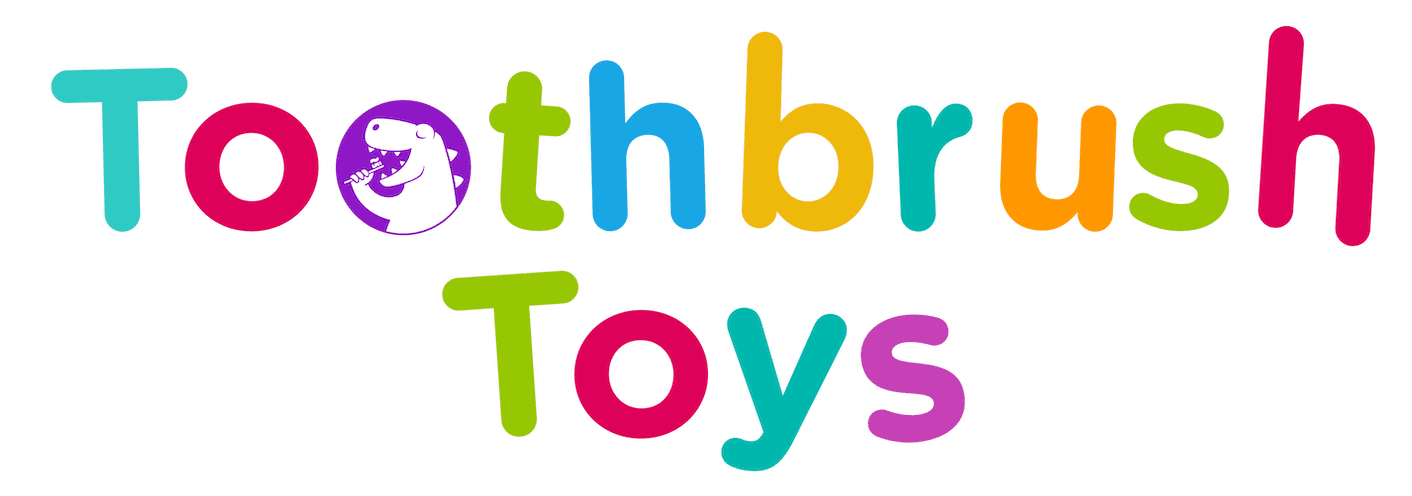Thumb sucking is one of those habits that starts off as an adorable comfort mechanism but can turn into a concern if it sticks around too long. While it’s completely natural in infancy, prolonged thumb sucking can lead to dental issues that affect your child’s smile. In this guide, we’ll explore why children suck their thumbs, the potential impact on their teeth, and how parents can gently encourage healthier habits—like making brushing fun with Toothbrush Toys!
Why Do Children Suck Their Thumbs?
Babies are born with a natural sucking reflex, and thumb sucking is often their first way of exploring the world. It’s comforting, soothing, and helps them navigate stress, boredom, or sleepiness, kind of like how a cozy bedtime story or a favorite stuffed animal makes everything feel better.
A Normal Developmental Stage
Most babies start thumb sucking before birth, and the habit peaks between 9 and 15 months. Many children grow out of it on their own, but some continue into early childhood, which is when dental concerns start to arise.
The Impact of Prolonged Thumb Sucking on Teeth
Thumb sucking is harmless in the early years, but if it continues past toddlerhood, it can lead to dental problems such as:
- Misaligned Teeth and Bite Issues – Constant pressure from sucking can push teeth forward, creating spacing problems and bite misalignment that causes uneven teeth
- Anterior Open Bite – A gap between the upper and lower front teeth that affects chewing and speech
- Excessive Overjet (Buck Teeth) – Front teeth stick out more than they should, making them more prone to injury
- Posterior Crossbite – When the back teeth don’t align properly, leading to chewing discomfort and possible jaw issues
- Speech & Swallowing Problems – Prolonged thumb sucking can impact tongue placement, leading to speech impediments like lisps
When Should Parents Step In?
Pediatric dentists and organizations like the American Dental Association recommend discouraging thumb sucking around ages 3-4, especially if it’s affecting teeth alignment. By this age, kids are developing habits that will carry into adulthood, so making oral care a positive experience is crucial!
Encouraging Healthier Habits
Breaking the thumb-sucking habit doesn’t have to be a battle. Here are some gentle, effective strategies:
Make Brushing Fun!
If your child loves the comfort of thumb sucking, transitioning to a fun brushing routine can help them feel just as engaged and comforted. This is where Toothbrush Toys can be a game-changer! Our character toothbrushes turn brushing into playtime, making kids excited about oral hygiene while naturally shifting their focus away from thumb sucking.
Use Positive Reinforcement
Instead of scolding, celebrate small victories! Praise your child when they go a period without sucking their thumb. Reward charts, stickers, or extra bedtime stories can be great motivators.
Provide Alternative Comforts
Since thumb sucking is often about self-soothing, offering an alternative comfort item—like a favorite toy, blanket, or even a Toothbrush Toy character—can help ease the transition.
Keep Their Hands Busy
Engaging activities like coloring, puzzles, or building blocks keep little hands occupied, reducing the likelihood of thumb sucking.
Talk About It
Sometimes, a simple conversation is all it takes! Explain in a fun, non-judgmental way how thumb sucking can change their smile and make brushing more important.
When to Seek Professional Help
If your child is still sucking their thumb past age five or if you notice significant changes in their bite, it’s a good idea to check in with a pediatric dentist. They can provide guidance, recommend appliances like thumb guards if needed, and help keep your child’s teeth on track for a healthy future.
Final Thoughts
Thumb sucking is a normal part of early childhood, but when it starts affecting dental development, it’s time to step in. By introducing fun oral care habits, like using Toothbrush Toys to make brushing exciting, you can help your child transition away from thumb sucking naturally. Gentle encouragement, positive reinforcement, and routine dental check-ups will ensure your little one grows up with a happy, healthy smile!
FAQs
Q1: At what age should I start discouraging thumb sucking?
A1: Around age 3-4, especially if permanent teeth are starting to come in
Q2: What are the biggest dental concerns linked to thumb sucking?
A2: Misaligned teeth, open bite, overjet (buck teeth), crossbite, and potential speech issues
Q3: How can I help my child stop thumb sucking without stress?
A3: Use positive reinforcement, introduce fun brushing routines with Toothbrush Toys, and provide alternative comfort items
Q4: Should I see a dentist if my child still sucks their thumb?
A4: Yes! A pediatric dentist can monitor their teeth and offer guidance on breaking the habit
Q5: Can thumb sucking lead to orthodontic treatment later on?
A5: In some cases, yes. Persistent thumb sucking can cause alignment issues that may require braces or other corrective treatments

